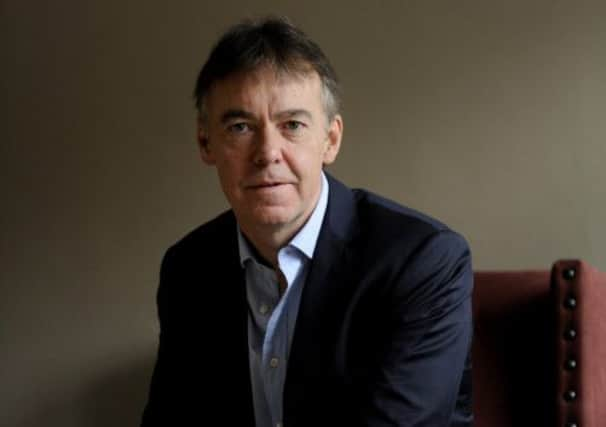Interview: Jeremy Darroch, BSkyB chief


His humble roots and no-frills attitude contrast with the more excessive celebrity lifestyle enjoyed by some of his media peers, but his rise up the corporate ladder is also a world away from the coalmining roots of his forbears.
Last week, the chief executive of BSkyB enjoyed a little of the opulence of the Waldorf Caledonian Hotel in Edinburgh to join his fellow board members ahead of the company’s annual general meeting (AGM), its first outside London. He may remember it for the fact that his £7 million pay and perks package, and the rewards for chief financial officer Andrew Griffith, prompted a backlash from more than a fifth of the company’s shareholders, the worst vote on remuneration the company has suffered since 2005.
Advertisement
Hide AdAdvertisement
Hide AdThe board defends its top team, saying performance is “excellent”. But Darroch must wonder what his coalminer grandfather would have made of it all.
It will be six years next month since Darroch took over at the helm of the satellite broadcaster and broadband supplier, stepping up from chief financial officer to succeed James Murdoch, son of media mogul Rupert.
The younger Murdoch disproved those who doubted his abilities, and Darroch faced the challenge of building on his predecessor’s record of growth. But he can rightly claim to have played a key role in developing it into a multi-faceted media company that has moved on from football and film to embrace the full panoply of the digital revolution.
That task was made more difficult three years ago when its biggest shareholder – Murdoch’s News Corporation – attempted to buy the 61 per cent of BSkyB it did not own. The bid was controversial, not least because of the increased media control it would have given to the Murdoch empire. But it became more so when the hacking scandal broke, spelling the end of News Corp’s ambitions.
Darroch continued to focus on building the business and looking after the customer. There has been more than enough to keep him occupied as it has evolved from a satellite television broadcaster into a triple-play media company that now includes broadband and telephone landline services. In just six years it has grabbed second place in the broadband market, though there have been some weaker numbers of late as the competition heats up.
Darroch knows it has adapt to customers’ changing needs, responding to their desire to watch programmes or access internet services on the go and on different devices. There are now seven products and the average subscriber takes three, with the clear business opportunity to convert more consumers to more products.
“We will not distribute our content in the same way forever more,” he says. “The technology is always changing.”
Subscriptions were “off a bit”, but it was to be expected in a tougher economic climate, he adds. Despite the squeeze, the dividend was increased for the ninth year since it was re-introduced.
Advertisement
Hide AdAdvertisement
Hide AdIf Murdoch’s bid had succeeded, Darroch had been lined up for a key job at News Corp. Instead, this son of a tax manager remains focused on establishing BSkyB’s independence and was openly critical of what happened at News Corp’s News of the World.
He was new to the media sector when he arrived at BSkyB as CFO in 2004 following a career in accountancy, retail and the consumer goods sector. One attraction for him is how the media landscape is constantly evolving and throwing up challenges.
“Viewers want to access television and broadband in a coffee bar or on the train as well as at home,” he says. Now TV was developed to sell programmes to occasional users. “It is popular with students or anyone travelling. This away-from-home consumption will grow.”
The company is largely associated with its sports coverage and football in particular, and the industry was stunned when BT Sports secured the rights to all European Champions League and Europa League football from 2015. Sky shrugged off the decision, claiming BT had overpaid and noting that the Champions League accounted for just 3 per cent of Sky’s total sports coverage. Darroch says he is happy to offer subscribers alternatives such as Ashes cricket, F1 and top-class golf.
“We are a broad-based sports service and the Champions League is just a small part of that,” he says defiantly, though analysts say BT has shrewdly used sport to halt the seepage of customers to the likes of BSkyB.
The day before his arrival in Edinburgh he had been speaking in Barcelona where he disclosed a desire to share platforms with BT so that they could show each other’s sports channels. It looked like an admission that some sort of deal was needed but he says that this had been discussed for some time and that no talks were scheduled at present.
He also insists that more non-sports programming is an option and is delighted that the company is now investing in original productions rather than just buying in programmes and series, mainly from America.
The company is increasing its spend on original production to £600m a year by the end of next year. When it made the commitment in June 2011, it was spending about £380m.
Darroch says: “We are increasingly working with the independent production sector and if there are good opportunities to work with companies in Scotland we will be keen to do that.”